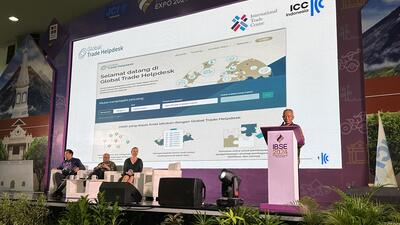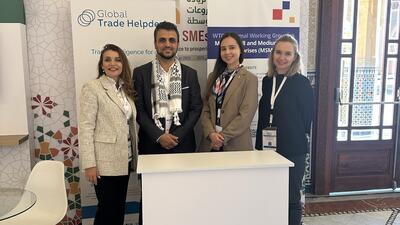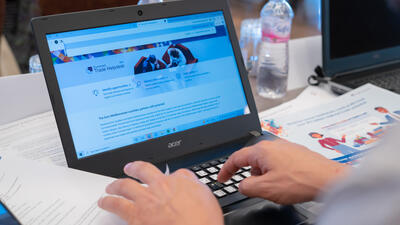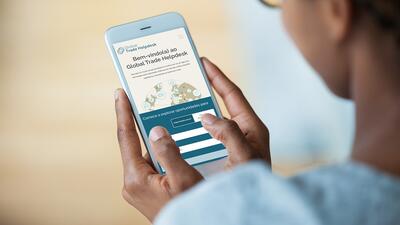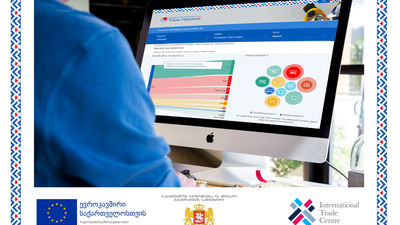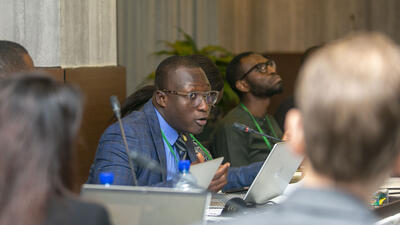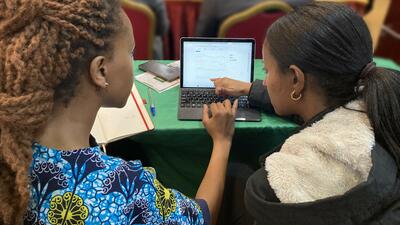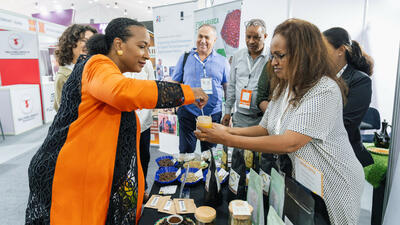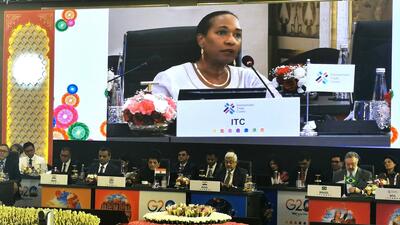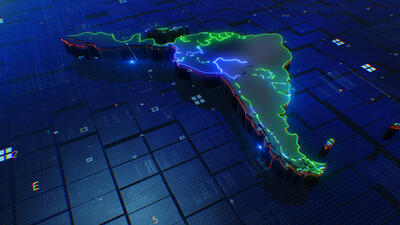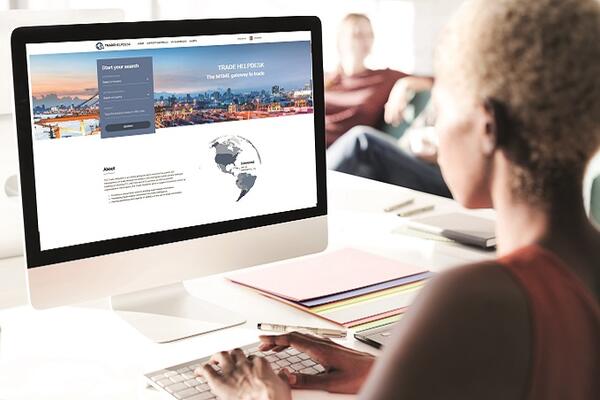
A one-stop shop for better global trade
ITC, UNCTAD and WTO launch Global Trade Helpdesk to step up transparency in global trade
International trade is an important means to achieve the United Nations Sustainable Development Goals (SDGs). Trade can and should play a crucial role in realizing these goals, which include ending extreme poverty and promoting inclusive and sustainable economic growth. Proper design and implementation of trade rules is vital to attaining these goals. While most trade agreements have focused on the liberalization and facilitation of trade, many countries are still struggling to integrate themselves into international value chains.
Often, what is agreed at the policy level is not adequately communicated to micro, small and medium-sized enterprises (MSMEs), in particular in developing countries. Access to relevant trade information is crucial for small business to succeed, especially when they target exports.
Companies need to know what label information to put on their products to access foreign markets, the requirements of potential buyers, the formalities to ship merchandises, the fees imposed at the border and many other requirements.
Lack of information – or worse, inaccurate information – on any of these issues can result in businesses recusing themselves from international trade. According to business surveys conducted by the International Trade Centre (ITC) on non-tariff measures (NTMs) in 38 countries, half of enterprises lack adequate trade information, hindering their ability to trade more.
Finding accurate trade information can be an uphill struggle for companies given the disharmonized nature of information, often spread across different sources and platforms. This requires highly developed skills, which in turn involves cost and time that smaller firms can ill afford. Such information asymmetry can be addressed by combining public and private-sector data and ensuring proper market linkages, particularly for small firms. And, above all, make sure that this information is up to date, easy to find and understandable.
Currently available in a beta version, the HelpMeTrade.org portal has four integrated modules with a variety of indicators and trade information to help both policymakers and MSMEs make better-informed decision. The portal is designed in an intuitive way, making it easy for users to navigate between the different modules.
Market Requirements and Trade Procedures modules help exporters and importers navigate in their daily trading activities. Combining data from ITC and UNCTAD those modules offer detailed information on regulatory and procedural requirements by product and market, including sanitary and phytosanitary (SPS) measures and technical barriers to trade (TBT) requirements as well as step-by-step export and import formalities. To ensure MSMEs are aware of new regulations, the portal will also notify registered users on any SPS or TBT notifications on products and markets relevant to the companies pooling data from the WTO.
Through the Business Corner module, MSMEs will be able to make business-to-business contacts with potential buyers in foreign markets and be informed on relevant trade fairs and events. Integrated information from the Inter-American Development Bank’s Connect Americas application, it is hoped that businesses can expand their businesses in new markets.
Meanwhile, the Policy Outlook will provide companies and policymakers with latest market trends from various source. Among others, the Export Potential indicator will offer rigourous trade analysis, based on ITC’s economic model that draws on trade, tariff, GDP and geographical data, into practical information about export opportunities. It identifies markets that offer room for export growth for the country’s established sectors.ONE FOR ALL, ALL FOR MSMES The initiative is not only about disseminating information but also about collecting it. National administrations and technical institutions in developing and least-developed countries will be offered tailor-made support to overcome capacity constraints in sourcing and updating trade information, as well as to develop country or region-specific interfaces linked to the helpmetrade.org portal.
Building the capacity of stakeholders in using the system will help ensure that the information stays relevant and up-to-date. To provide further support to MSMEs and public institutions in making the most of the HelpMeTrade.org portal, e-learning courses and other user support material will be made available in multiple languages. COLLABORATIVE EFFORT While ITC, the WTO and UNCTAD is leading a coordinated effort to get the Global Trade Helpdesk up and running, a number of international organizations and development banks have joint this effort, including the Inter-American Development Bank, the United Nations Industrial Development Organization and the World Bank Group.
Users, too, has a role to play to ensure that the Global Trade Helpdesk remains relevant and sustainable over the long run by ensuring that data is provided and updated. The business community can do its part by providing feedback on how future development of the portal can best help their enterprises.
In a nutshell, the Global Trade Helpdesk is about moving from making trade possible to making it happen. Through the HelpMeTrade.org portal, data will be turned into practical and usable intelligence, and will be an excellent tool for MSMEs to better identify and reduce obstacles to trade. It will increase transparency, improve coherence and help MSMEs to navigate the procedures needed to break into foreign markets and grow through trade.





